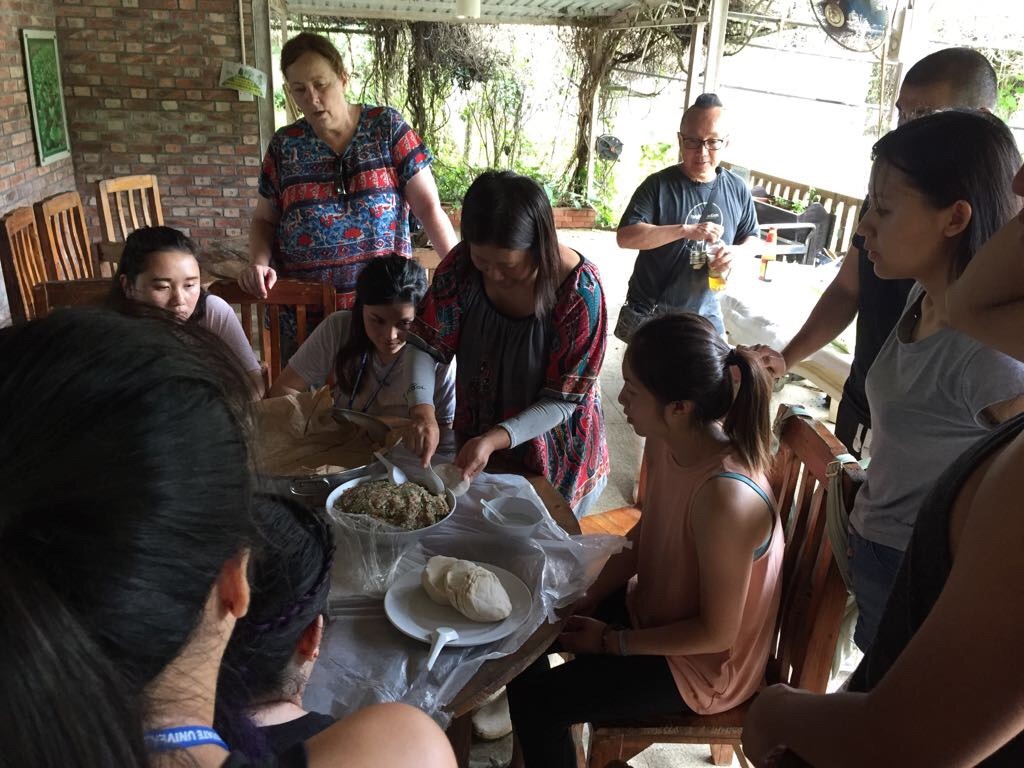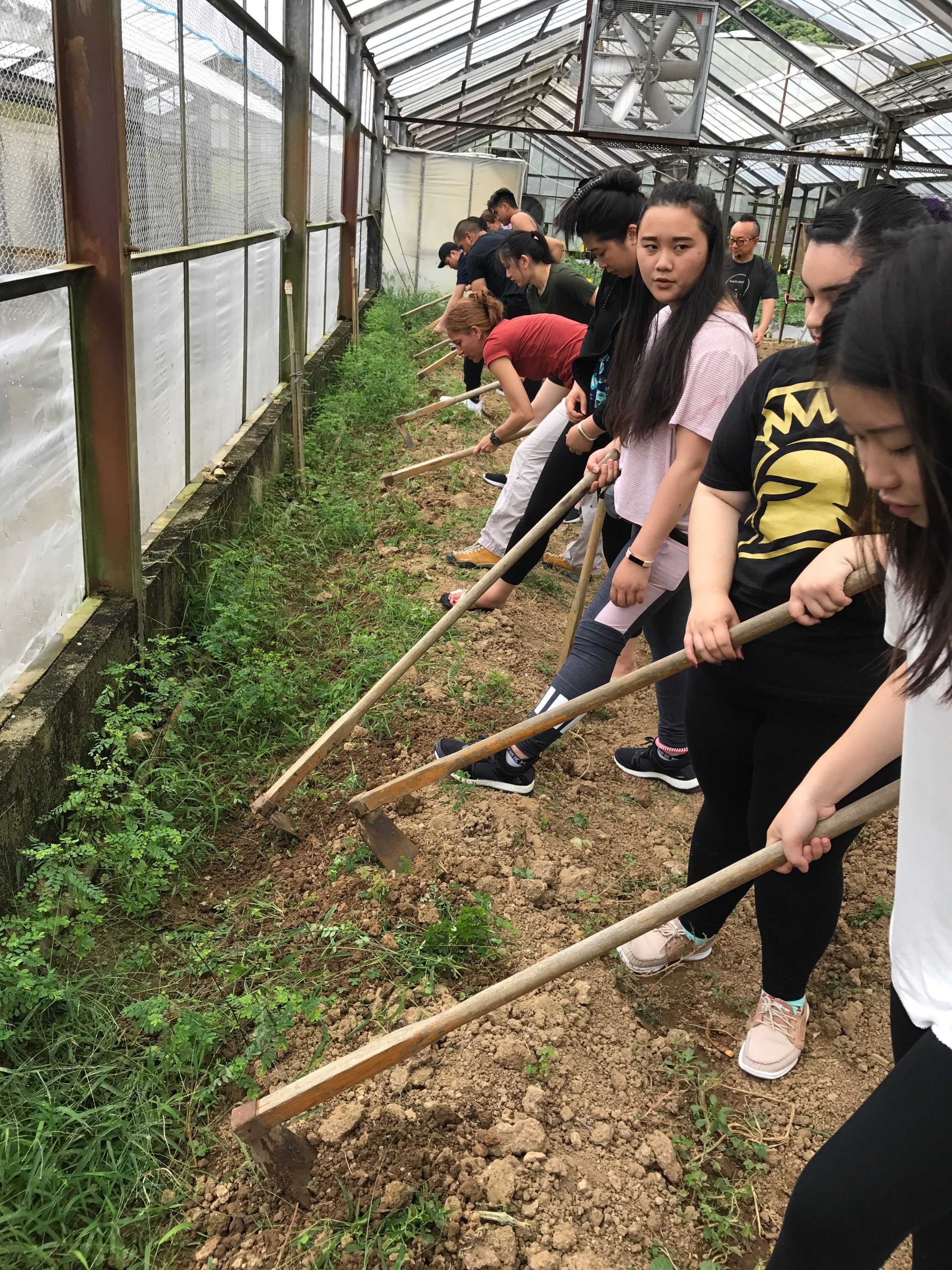Today, many people chose to eat or buy organic food but very few of them have visited one. Actually, this is also the first time that many of us are visiting one too. Definitely an experience I would never forget. There were only four farm workers in this small three acres’ farm. After touring the entire farm. I understand there is a lot of work each farm worker has to put into it for this farm to grow. Sometimes, the weather or the pests can ruin the entire section of crop and all the work put in it would go to waste.
Early Monday morning, we met up with Gabi at the school dorms around 10 AM. From Ho Man Tin we took the MTR to Kam Sheung Road. There was not one MTR that took us directly there so we transfer at Mong Kok and Mei Foo. Once we exited the station, there was a bus from the farm that took us directly there. The farm is up the hills and I did not see any buses that was going up that road. The minute we got there, Tin, the tour guide gave us an introduction of himself and also about the organic farm. Next, he took us to the different greenhouses and introduced the vegetables and fruits.
Watermelon is one of the fruits they grow in one of the greenhouses on the farm. According to the Tin, it is best to grow watermelon in the summer time. Watermelon also does not like to be watered so in order to water the watermelon, the farm workers put a silver foil cloth between the watermelon and soil. They have pipes under the silver foil cloth to water it. This way, the watermelon itself would not be wet. When water touches the watermelon, it will split in half. The foil cloth is silver so it helps reflects radiation and provides a warm surface for the watermelon to grow. On the left side of the picture above, there is a yellow watermelon. The yellow watermelon is a Taiwanese breed. Even though it is yellow on the outside, the flesh of the watermelon is still red.
At the end of the tour, Tin led us one of the greenhouses and we started plowing all the weeds out. This is one of the tasks the farm workers have to do to maintain the organic farm. Since no pesticides are used to keep pests away from the vegetables and fruits, this also means no pesticides are used to keep the weeds from growing. Even though we had a large area of weed to clean up, we finished it quickly since there are so many of us. Afterward cleaning up, we had the chance to make our own dumplings for lunch. 

For some us, we have made dumplings at home before with our parents and for the rest of us, this is also the first time to make dumplings. At the end, all of the dumplings came out delicious. For my table, a lot of us have made dumplings before so it was not a challenge. When we were about to cook the dumplings, the lady wanted us to make broth with the sauces but instead we wanted to boil the dumplings and make our own sauces to dip the boil dumplings in. Either way was delicious. The dumpling making was definitely a great way to end an informative and hands-on tour.

